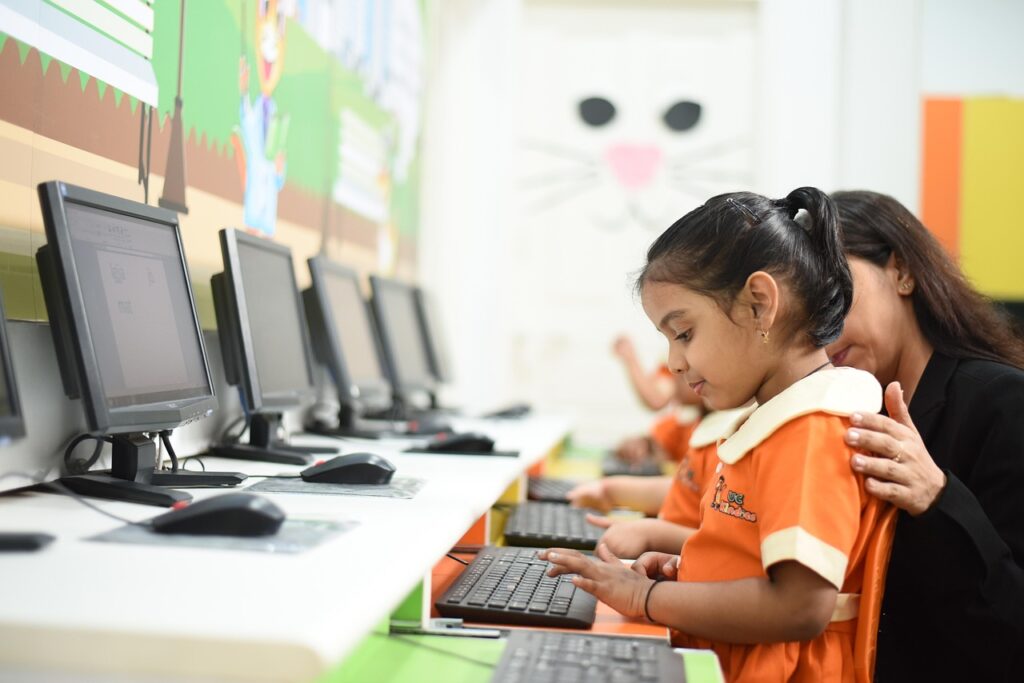Choosing the right preschool is essential for laying a strong foundation for a child’s future education and overall development. In India, several preschools stand out for their focus on safety, modern teaching methods, and holistic child growth. The top 10 preschools in India combine experienced faculty, engaging environments, and diverse curricula to meet different learning needs and preferences.
These preschools often incorporate play-based, Montessori, or blended teaching styles to encourage creativity and critical thinking in young children. Families across cities like Delhi, Mumbai, and Bangalore seek these institutions for their reputation in delivering quality early education and nurturing child development in safe, supportive spaces.
Parents looking for the best preschools can expect schools with strong academic foundations alongside creative and social learning opportunities. This list highlights the leading choices that balance educational excellence with a focus on the individual child’s growth.
Top 10 Preschools in India
Preschools in India focus on creating safe, nurturing environments with balanced play and learning. These schools emphasize early social skills, creativity, and cognitive development, often incorporating modern teaching methods alongside traditional values.
Lil Bo Peep Preschool
Lil Bo Peep Preschool prioritizes a child-centered curriculum that blends play with structured learning. It encourages language development and motor skills through activities like storytelling, music, and art.
The school maintains small class sizes for individualized attention. It also emphasizes emotional growth and social interaction by fostering teamwork and sharing. Safety and hygiene are integral to its daily routine.
Bachpan Play School
Bachpan Play School offers a curriculum aligned with national early childhood education standards. It integrates technology and experiential learning to engage children’s curiosity.
The school uses themed activities to enhance cognitive and physical skills. Teacher training is continuous, ensuring quality instruction. Parents are regularly involved through meetings and workshops.
Kidzee
Kidzee is one of India’s largest preschool chains, known for its structured curriculum based on multiple intelligences theory. It offers tailored learning paths to address different developmental needs.
Kidzee campuses provide modern facilities, including outdoor play areas and creative zones. Its programs focus on language, math, science, and arts, promoting holistic growth. Frequent assessments help track progress.
EuroKids
EuroKids blends play-based methods with academic basics, promoting early literacy and numeracy. It features a child-friendly environment with bright classrooms and safe, interactive play areas.
Its curriculum fosters social skills, independence, and problem-solving. Regular parent-teacher communication supports consistent development. EuroKids invests in teacher quality through periodic training.
Shemrock
Shemrock emphasizes a play-school approach with thematic learning suited to diverse cultural contexts. It uses audio-visual tools and story-driven lessons that stimulate imagination.
The school also incorporates yoga and physical activities, promoting health and focus. It maintains close communication with parents for feedback and progress updates. Safety standards are rigorously followed.
Hello Kids
Hello Kids abroad strong emphasis on creative expression and emotional intelligence development. The curriculum involves music, dance, and art to nurture children’s individual talents.
Small class sizes and experienced staff ensure personalized support. The school also encourages language acquisition through interactive sessions. Facilities are designed to be child-friendly and secure.
Shemford Futuristic School
Shemford integrates technology with traditional play-based learning to prepare children for modern education challenges. It offers early exposure to computers alongside literacy and numeracy skills.
Their approach supports cognitive, social, and physical development equally. Shemford also focuses on sustainability and environmental education. Parent involvement is promoted through regular engagement programs.
Podar Jumbo Kids
Podar Jumbo Kids implements age-appropriate curricula emphasizing inquiry and discovery learning. The school focuses on communication skills and creative thinking.
It provides well-equipped classrooms and outdoor facilities. Teachers are trained in child psychology and innovative teaching methods. Frequent assessments and parent-teacher interactions keep progress transparent.
Little Millennium
Little Millennium follows a learner-centric approach using play, music, and storytelling. Its curriculum balances language, math, and social skills development with physical activities.
Safety and hygiene are prioritized with managed child-to-teacher ratios. The school organizes events to encourage community involvement and parental participation. Regular skill assessments guide personalized learning plans.
Kangaroo Kids
Kangaroo Kids promotes experiential learning through hands-on activities that stimulate curiosity and problem-solving. The curriculum is designed to develop critical thinking early on.
The school invests in extensive teacher training to maintain quality. Kangaroo Kids facilities include sensory rooms and interactive zones. Parent engagement and feedback are integral to the school’s educational model.
Key Features of Leading Preschools
Leading preschools in India emphasize a well-rounded approach that balances structured learning with creative play. Their core strengths lie in a carefully designed curriculum, conducive learning environments, skilled educators, and robust infrastructure.
Academic Curriculum
Top preschools adopt a curriculum that blends play-based learning with foundational academic skills. They emphasize language, numeracy, and cognitive development through interactive activities rather than rote methods.
Many incorporate thematic learning and inquiry-based projects to foster curiosity and problem-solving. The curriculum often aligns with recognized frameworks such as Montessori, play-way, or activity-based methodologies. This ensures children develop social, emotional, and intellectual skills gradually and naturally.
Assessment is usually continuous and informal to track progress without pressure. Parents are kept informed about milestones and learning goals, encouraging involvement and support at home.
Learning Environment
The learning environment in leading preschools is safe, stimulating, and child-friendly. Classrooms are colorful and spacious, designed to encourage exploration and creativity.
Outdoor play areas are essential, providing children with opportunities for physical activity and social interaction. The environment integrates various play stations for art, music, reading, and science experiments.
Preschools prioritize emotional well-being by creating inclusive spaces that welcome diversity. Positive reinforcement and gentle guidance are common approaches to support children’s confidence and autonomy.
Teacher Qualifications
Qualified and experienced teachers are a hallmark of top preschools. Staff members typically hold diplomas or degrees in early childhood education or related fields.
Continuous professional development is emphasized, ensuring teachers stay updated on modern pedagogical techniques. Effective communication skills and empathy are key traits among preschool educators.
Teachers maintain low student-teacher ratios to provide individual attention and understand each child’s specific needs. They also foster strong partnerships with parents, sharing observations and suggestions.
Infrastructure and Facilities
Leading preschools invest in safe, accessible infrastructure designed specifically for young children. Facilities include well-maintained classrooms, age-appropriate furniture, and clean washrooms.
Technology integration is usually minimal but purposeful, supporting interactive learning tools like smart boards or tablets where appropriate. Hygiene and security systems are strictly enforced, including CCTV monitoring and secure entry points.
Additional amenities often include libraries, indoor play zones, and medical rooms. These features contribute to a holistic environment where children can learn, play, and grow confidently.



